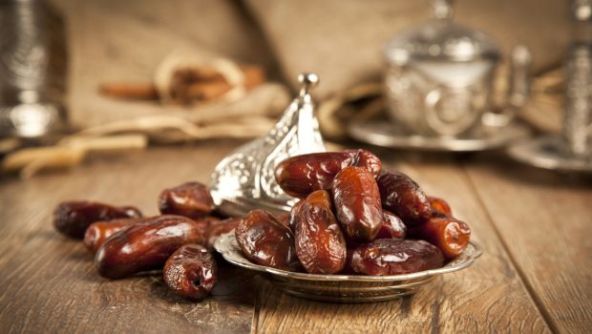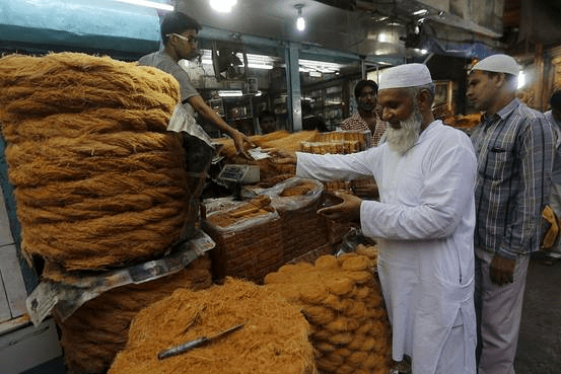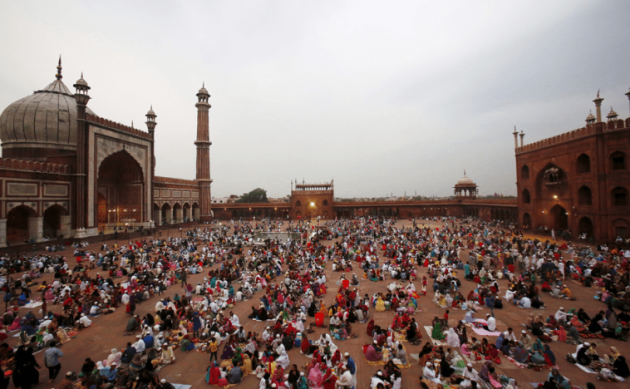
The core value of Ramadan, the holy act of fasting, is universal – to help people learn how to resist reckless temptations. Believers observe fast from dawn to dusk without experiencing the ecstasy of food and drink.
This is practiced by all Muslims irrespective of where they live, but the way fasting is celebrated, somewhat differs from region to region. An Arab’s way of celebrating Ramadan is likely to be a bit different from non-Arabs. So am sharing my experience of Ramadan being observed and celebrated in India.
Predominated by Hindus, India is also home to the world’s second-largest concentration of Muslims, after Indonesia. Hence, you can imagine that Ramadan in India is celebrated with extreme zest as in Muslim dominated countries, albeit with an Indian influence.
The month of fasting, charity and reflection is known as ‘Ramzan’ in the South Asian country. The best part of Ramzan in India is that even a few non-Muslims keep it for some days to practice and test their will power. During that time, it feels like we all are one, despite our different faiths. This is the extent of Ramadan’s miracle in India.
Fasting, Feasting and Shopping
We have completed half of the Ramadan and this time in summer with 15hours of roza.
Most of the people who observe fast, remain in their regular routine of doing duties and performing tasks. Commercial activity remains unaltered during the day and people begin to retire to bed by midnight.
Men, women and children remain busy with their work while taking out time to break their fast at sunset.

Muslims and Non-Muslims, everyone from different social classes come together during this month. Muslims invite their neighbours, non-Muslims, for iftar and so do the non-Muslims arrange iftar for Muslims. Stalls are put up on streets serving free water, dates and fruits for people who can and cannot afford it, whether Muslim or not.
Hotels in India remain open to the public. The restaurants are also seen open with their curtains half-hanging at the entrance where Muslims dwell in majority. The freedom to eat or to drink is unrestricted in India with no spiritual consequence as such, unlike Muslim countries.
We stay true to the Prophet (PBUH)’s tradition when breaking the fast with dates and water, or sometimes with dried fruit milk. Apart from that, the most common traditional iftar items are channa dal, pakodas, dahi wada, fruits, samosa, firni, kheema and haleem.
As for Suhour, traditionally, we would eat a heavy sohoor meal comprising kichdi (rice cooked with lentils), keema (minced meat), eggs and paratha (layered Indian flatbread made of wheat). Preferably many follow Healthy Meal.

The month also witnesses huge economic activity. Parts of cities like Delhi, Hyderabad, Kolkata or Mumbai, with a large Muslim population, come alive, especially in the evenings. The markets become abuzz with people buying dates, fruits and the fried items for ‘iftar’ or breaking of the fast.
The occasion brings together the devout in mosques and at community ‘iftars’, as the holy month provides unique opportunity to foster unity and brotherhood. But in some cities, mosques are too far, so the people cannot hear Azaan. They use the Ramzan timetable for suhoor & iftar timings.
Dozens of organizations distribute free rations, clothes and even money among poor families so that they also join the month-long festivities. Shopping continues till late in the night with the people tasting haleem, kheema, kababs and biryani prepared by numerous hotels and roadside eateries.
Apart from food, people start shopping for Eid, the shops are open till midnight and latest outfits are available. The worshippers throng the mosques for prayers till around midnight. The activity resumes in the wee hours of the day with people waking up for ‘sahr’ or pre-dawn meals followed by the morning prayers.
Cooperation with the Muslims in Ramadan
Corporate organization and offices arrange meals for their employees for the fast. Arrangements vary from office to office, either some make arrangements for food or employees make arrangements or some let the employees leave early.
But still in this corporate competitive scenario, many employees face difficulties to reach home on time before iftar. The important thing is that work should not be hampered. So if there are many Muslims in a department, then they have to adjust among themselves duty timings.
Despite being a Hindu dominated country, there is complete co-operation from the authorities and the government. From the use of speakers beyond the regular deadline of 10.30 pm for prayers in public areas, to keeping shops and opening up temporary make-shift stalls on pavements from dusk to dawn with equal co-operation from people belonging to other religions.

During Ramzan we experience the love, peace, harmony and togetherness despite the country being an amalgamation of different cultures and faiths. This is the beauty of our country- India !
*This article was originally written for Mvslim. Image courtesy- Google,Reuters












What a nice and informative post. Got to know a lot abput the holy month. Have a happy Ramadan.
Thanks & Happy ramadan
I want to know why dates are so important in Ramadan. Is any significant or story behind it. I am so surprised in this scorching heat how Muslim bear thirst.
We follow Prophet (PBUH) steps, he used to break fast with dates & also dates is staple fruit in Middle East where Prophet belonged.
Apart Dates are very good for health esp during Ramadan, when fasting lasts from sunrise to sunset, the body can develop mild health problems such as headaches, low blood sugar, and lethargy.
To avoid such problems, Dates is good as it an excellent source of fiber, sugar, magnesium, potassium, and have carbohydrates which will aid the body in maintaining health.
Useful informations
Wonderful post. Truly diversity is the beauty of our nation. Happy Ramadan to you n your family.
Very well written post. Happy Ramadan to you and your near and dear ones.
Amazing and informative post. Muslims keeps Ramadan fasting with great faith. Great read.
Thanks dear for this great blog
Very well written blog post.Happy eid to all of you
Wonderful and informative.. Nicely described..